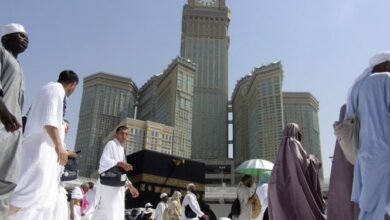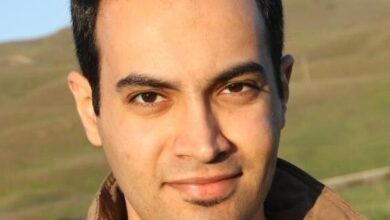Abdullah al-Hamid, Saudi reformer, 1951-2020

Abdullah al-Hamid, the Saudi reformer, was a towering figure among political and human rights activists in the kingdom. He will be remembered as a tireless voice for change in a land that has become more intolerant of even the mildest forms of dissent.
Hamid, who has died aged 68, had been serving an 11-year sentence for his activism that was passed in 2013. Imprisoned repeatedly since the 1990s for joining different reform movements, he continued to demand change until his last days of freedom. A writer and poet, he leaves behind a considerable body of work, particularly on how political and civil rights can be achieved within an Islamic framework under a monarchy, including a draft for an alternative Saudi constitution.
Amnesty International, the human rights group, said Hamid was told by doctors he needed heart surgery three months ago, but that prison authorities warned he would lose contact with his family if he told them of the diagnosis. He died detained in hospital after suffering a stroke which left him comatose.
Born in 1951, in a small town in the ultraconservative Qassim region of Saudi Arabia, Hamid studied Arabic literature at Azhar University in Egypt in the late 1970s. He returned to the kingdom and worked as a university professor there before losing his job as a result of activism. In 2003, Hamid, often described as a moderate Islamist, spearheaded a reform petition to King Abdullah — then the crown prince — calling for a constitutional monarchy. It was signed by dozens of activists, including liberals and figures in the Shia minority.
At the time, the kingdom was reeling from the impact of the 2001 terror attacks in the US — most of the perpetrators were Saudi. There was intense pressure for reform from the US and from segments within Saudi society.
“It was a unique moment in Saudi history,” said Gregory Gause, professor of international affairs at Texas A&M University. “There was a real, if limited, political opening after 9/11.”
That opening proved shortlived, however. Hamid and two other activists were sentenced to jail for dissent, but King Abdullah pardoned them shortly after he ascended the throne in August 2005. “Do not fear jail,” Hamid used to tell the younger generation, who had begun to yearn for rights and freedoms amid rapid growth of internet use in the kingdom, and optimistic early signs that the new king was more open to reform.
An eloquent speaker with a resonant voice, Hamid was a man of short stature and a fatherly demeanour, who always left the collar of his white thobe open. He shunned opportunities to speak with foreign diplomats or international media, for fear of being accused of receiving support from outsiders.
In 2009, he co-founded the Saudi Civil and Political Rights Association in a bid to establish organised human rights rooted in Islam and local culture. The group was never officially recognised but the bold effort gained momentum as the Arab Spring uprisings swept the region. That was cut short when Hamid and Mohammad Fahad al-Qahtani, another co-founder of the group, were put on trial. In March 2013, they were sentenced to lengthy jail terms on charges including “undermining national unity, disobeying the ruler, and questioning the integrity of officials.”
Theirs was a landmark trial because they insisted that the hearings must be open and public. Activists appeared in court to show support as the proceedings took place over six months. The harsh sentences marked the start of an escalating crackdown as authorities, fearing the impact of uprisings in the region, asserted control. “To the sceptics and those concerned [over the trial], if we are imprisoned then it is a major victory for the project,” Hamid wrote on Twitter on the eve of sentencing. “From prison, the candles are lit.”
Many of Hamid’s friends and supporters in Saudi Arabia found themselves forced to stay silent after his death out of fear that publicly mourning him would trigger repercussions. A rare public tribute came from Abdulaziz al-Dukheil, a former deputy minister and signatory to one of Hamid’s petitions in 2003.
“The man who has remained loyal to his homeland, high morals and true citizenship, has passed away, but he did not leave from the hearts of those who are faithful to the country and who believe in offering advice and counsel without fear and without any special interest,” he tweeted. “May God have mercy on you, Abu Belal.”
Despite hardship and repeated detentions, Hamid was optimistic about the potential for change and believed the impact of his efforts would outlast him. “The river digs its own course,” he said.
Source: Financial Times





